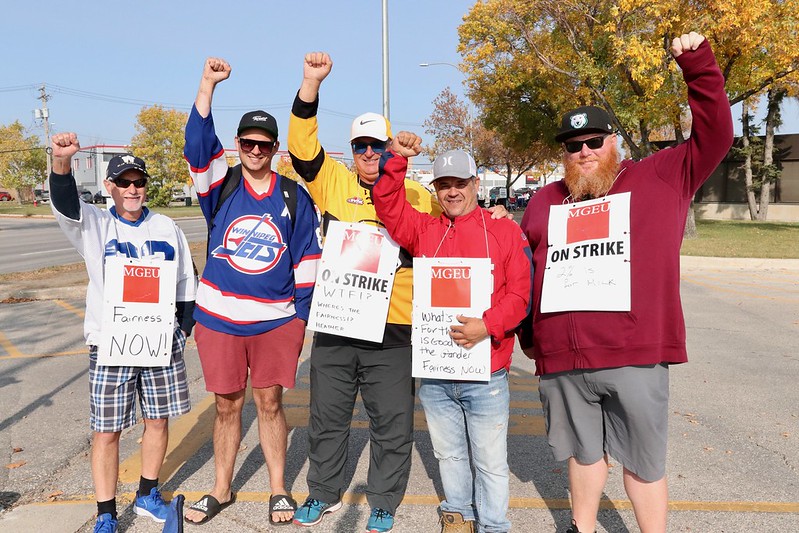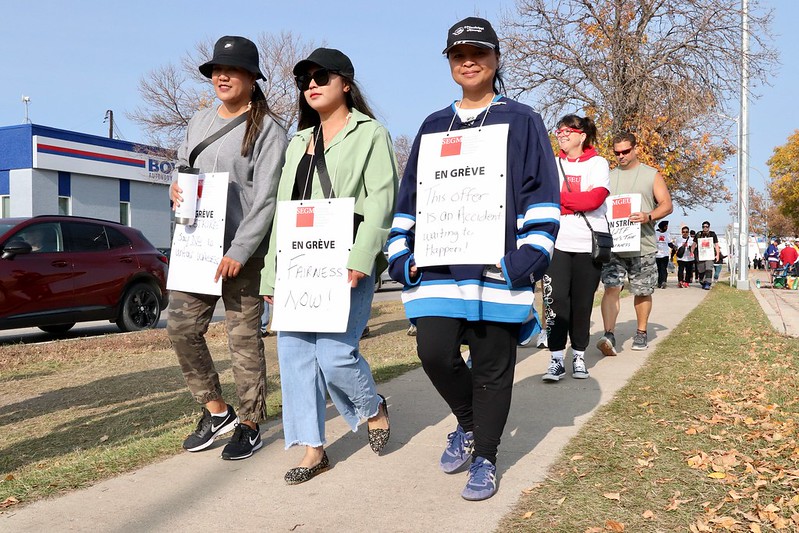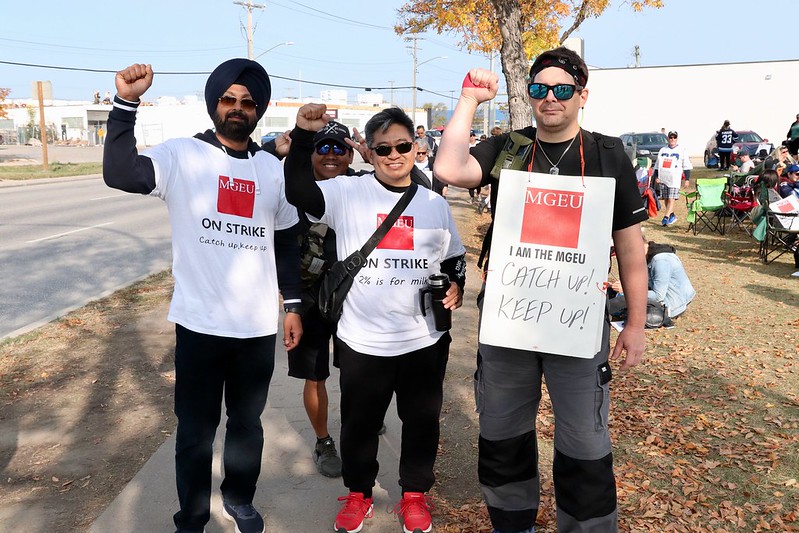Manitoba Public Insurance (MPI) workers have been on strike since August 28. Similar to the Liquor Mart workers and other public servants, MPI workers were affected by Bill-28 which allowed workers to have a maximum wage increase of 1.75% increase within the years of 2017-2021.
On the picket lines, workers were very concerned with their employer bargaining in bad faith. A striking point for them was that just two days into the strike, MPI, the crown corporation that handles all of Manitoba’s insurance and drivers licensing, began issuing driver’s licenses without requiring any road tests. Ward Keith, Chair of MPI Board of Directors said, “I’m confident that there will be no safety concerns by taking this step.”
MPI only waved road-testing for 4 hours as it was a breach of legal agreements Manitoba has with other provinces and countries who validate Manitoban licenses. One MPI worker told North Star, “MPI must ensure a certain standard of road-testing or we risk not being able to drive across provinces. And waiving the road-tests is just completely illegal and mind-blowing they’d even think of doing that.”
In an interview with North Star, a road-test examiner disclosed that, on average, only 30% of road-tests end with a passing grade. He says that even though MPI waived road tests for just 4 hours, this decision has decreased the safety of Manitoba’s roads.
Another instance cited by MPI workers as evidence of their employer’s bad faith bargaining was the hiring of replacement workers, commonly referred to as ‘scabs.’ MPI has enlisted such workers to fill numerous positions, including those involved in road testing and the contact centre responsible for processing insurance claims. “It devalues the strike, I don’t think that should be allowed, I think that should be illegal” an MPI worker told North Star.
“How can they do the same quality of job as we were doing with only 2 days of training? We get at least 7 weeks of training.” Another worker told North Star. “It’s certainly disappointing. It’s 7 week training and they spend most of that time making you feel like your labour is so valuable, and then they were able to get people in assumingly a week or two and have them do work to a lower standard. This is frustrating.”
“The impact of our labour not being present is not being felt as hard,” she adds. “And they’re able to make it look as though they’re keeping their heads above water more-so than they are, while actually just creating a bigger mess and harder work for employees once we return [to work].”

One worker was especially concerned with the public not being told who is able to access their personal and insurance information. “The public should know that their information is being accessed with no security verification—I know I had to go through a big vetting process to get my job, they did background checks and everything. Where it seems as though they walked into a call-centre and got a bunch of scabs. So I’m not sure how the public feels about their information being used.”
On September 15th, MPI workers received an e-mail from MPI beginning with, “We have received a significant number of requests from employees to return to work during the labour interruption.” The worker we spoke with pickets around the call centre where the scabs work, she told North Star she had not seen any workers she recognized breaking the picket line.
The e-mail later laid out a time-line of what the strike would look like after the 60 days of strike action and then going into arbitration. In Manitoba, workers can only strike for 60 days and afterwards either the employer or union can apply for arbitration. A worker told North Star they felt it was wrong of the employer to tell them what the strike would look like and that by laying out the time-line of the strike, they were implying they would not agree to anything until arbitration.
A worker told North Star that they couldn’t believe they received an e-mail like this. “It’s like the company is pitting us against each other. They are asking us to break the picket line!” The worker continued to explain that MPI mis-represented their contract offer again in this e-mail and that it felt like another way to scare workers to go back to work.



Be part of the conversation!
Only subscribers can comment. Subscribe to The North Star to join the conversation under our articles with our journalists and fellow community members. If you’re already subscribed, log in.